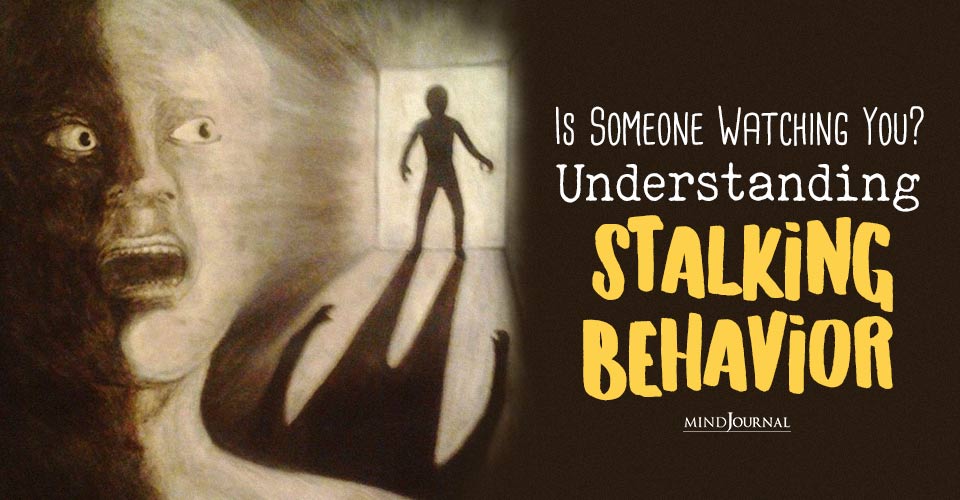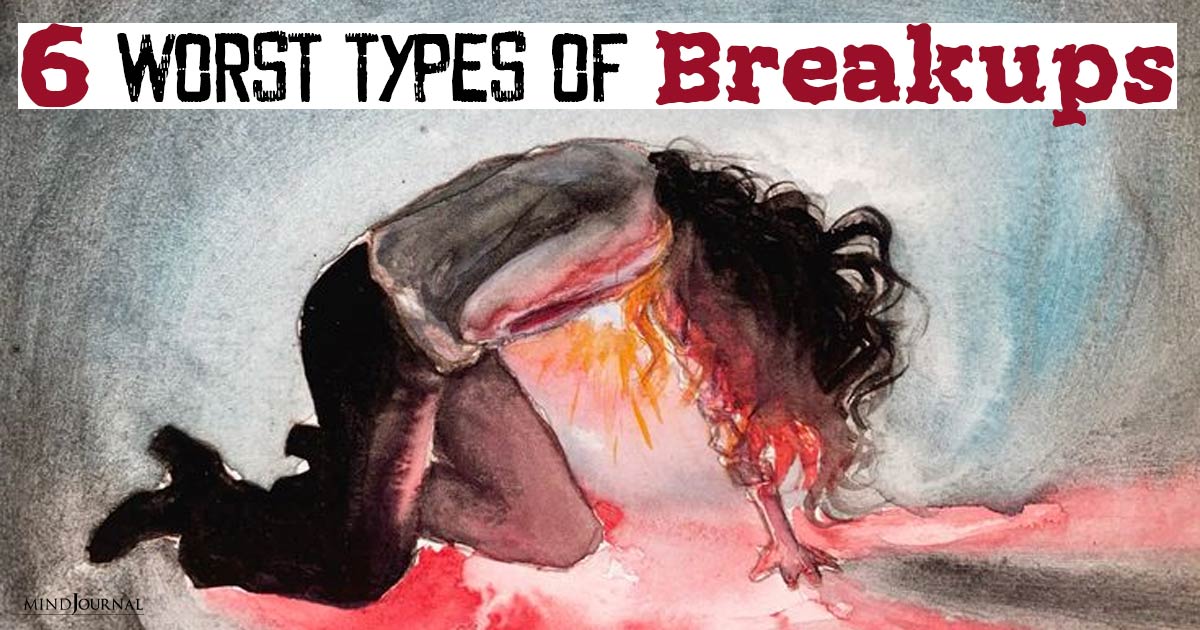You have this constant feeling that you simply can’t shake. Your anxiety levels have shot up and you’re always on the edge. You feel like you’re being watched…all the time. Every step you take, every move you make, someone is watching you. You have a stalker and they are stalking you even when you’re at home.
Trigger warning: If you have been stalked before, then this content may appear triggering. Please use your discretion before reading the following content.
Is someone following you?
You walk down the street. It’s late. There are a handful of busy people walking by who pay no attention to you. The yellow streetlights make you feel relaxed and comfortable as you slowly walk towards your home. And then it hits you out of nowhere. That disturbing feeling of being watched. Of being observed. You stop and look around. But there’s no one around you. You breathe a sigh of relief and tell yourself that it’s all in your head. You start walking towards your home again.
But for some reason, something doesn’t feel right. Your shoulders are tense, your back feels heavy. You can feel a trail of sweat flowing down from your temple. Your gut is screaming at you to look behind. You suddenly turn back and that’s when you see it. A dark silhouette standing behind you. He looks familiar, but you can’t identify who it is exactly. Your heart sinks and you struggle to breathe as a sudden rush of fear takes over you.
You turn back and start walking faster, only to hear his footsteps behind you matching your pace. You walk faster, so does he. You panic and start running to reach your doorstep. As you struggle to open your lock, you look behind in fear, but there’s no one to be seen.
You wonder if it was all in your head. Was it just a trick your tired mind played on you? As you enter your house and lock the door behind you, you see him standing still in the darkness behind the streetlight. You have a stalker and they are here to stay.
While this is what stalking may have looked like traditionally, with the advent and ever growing popularity of social media, online stalking or social media stalking has become very prevalent. Sadly, most of us are unaware that we are being stalked, whether online or in real life.
Related: What Happens When You Have An Abusive Partner Stalking You
What is stalking?
Stalking refers to unwanted, intrusive and repeated surveillance, attention, contact or harassment by someone directed towards a particular individual. This can make the victim feel afraid for their safety and privacy, anxious, emotionally distressed and depressed.
Stalking someone is primarily a form of manipulation & intimidation done by the stalker to gain power and control over the victim. It is typically considered as a criminal offense by the federal government in the United States.
Usually, stalking can look like receiving unwanted contact, such as –
- Repeated phone calls, text messages, or emails
- Being followed or watched by someone
- Unwanted gifts or messages
- Threats or intimidation
- Social media harassment
Stalking is a serious and potentially dangerous behavior that affects millions of people each year. It is a pattern of behavior where one person repeatedly harasses or threatens another person, causing them fear and stress. While it is often associated with strangers, the majority of stalking cases involve someone the victim knows, such as –
- Ex-partner
- Classmate
- Coworker
- Neighbor
- Acquaintance
It is important to take stalking seriously and to seek help if you are a victim of stalking. This can include notifying the police, seeking support from friends or family, and documenting all contact from the stalker.

Psychology of stalking
Stalking is a serious crime that can have devastating consequences for the victim’s emotional and physical well-being. Researchers claim that stalking is a common problem in our society. It is often motivated by psychiatric disorders in the stalkers and can have negative psychological and social effects on the victim. “Stalking is a frequently reported crime. It has a strong impact on the lives and mental health of the victims. It is perpetrated by persons who often suffer from mental disorders,” explains a study.
Stalking is a pattern of behavior that involves –
- Harassing
- Threatening
- Following
- Monitoring, and
- Contacting another person without their consent
It is generally not a one-time event, but rather a series of actions that are meant to intimidate or frighten the victim. It is important to note that stalking can occur in a variety of contexts, including intimate relationships, educational environments, work settings, and with complete strangers.
While most “legally defined stalkers are men stalking women,” researchers have observed that many more women tend to stalk men as well. Hence, there are no significant gender differences in this area.
Preventing stalking is a community effort that involves educating oneself and others about the signs of stalking and how to report it. Speaking out against stalking and supporting victims can also help to prevent stalking from occurring in the first place.
Types of Stalking
Stalking can take many different forms, and it is not always easy to recognize. Some common types of stalking include:
1. Cyberstalking
This type of stalking involves the use of technology, such as social media, email, or text messages, to harass or threaten someone. Researchers have found that “As Internet use increases, there is a growing risk of online harms, including cyber stalking.” Facebook stalking, Instagram stalking or being stalked on other social media apps have become very common nowadays.
Related: 5 Social Media Habits That Are Toxic To Any Relationship
2. Intimate partner stalking
This type of stalking occurs when a current or former intimate partner harasses or threatens the victim. Studies have found that 54% of reported stalking cases occur in romantic relationships and “45% of stalking cases occur following the dissolution of an intimate relationship.”
3. Stranger stalking
This type of stalking occurs when a stranger follows or harasses someone without any prior relationship. Researchers have found that individuals who stalk strangers are “often mentally ill and psychopathology is associated with more persistent and recurrent stalking behavior.”
4. Work-related stalking
This type of stalking occurs when a coworker or supervisor harasses or threatens an employee.
Signs of stalking
Wondering what are the signs that you are being stalked? Here are some common signs someone is stalking you:
1. Receiving unwanted contact
If someone is repeatedly calling, texting, or emailing you despite your requests for them to stop, this may be a sign of stalking.
2. Following or monitoring
If you notice someone following you or watching your every move, or if you suspect someone has installed tracking devices on your car or computer, this may be a sign of stalking.
3. Unwanted gifts or messages
If someone is sending you unwanted gifts or messages, this may be a sign of stalking. These gifts or messages may be intended to intimidate or scare you.
4. Threats or intimidation
If someone is making threats or intimidating you, this is a clear sign of stalking. These threats may be verbal or written, and they may be directed at you or your loved ones.
5. Social media harassment
If someone is harassing you on social media, including sending you unwanted messages, posting negative comments or images, or creating fake profiles to stalk you, this may be a sign of stalking.
6. Surveillance
The stalker may watch you from a distance, spy on you, or monitor your online activity.
7. Stalking your friends or family
The stalker may try to contact your friends or family members to get information about you or to harass them.
8. Showing up unexpectedly
The stalker may show up unexpectedly at your home or workplace, or in places where they know you will be.
Related: 9 Warning Signs Of A Controlling Boyfriend
Why people stalk
Stalking is a complex and often illegal behavior that can have serious consequences for both the stalker and the victim. There are many possible reasons why people stalk, and it can be difficult to identify a single cause.
Some common reasons people stalk include:
1. Obsession
Some people become obsessed with another person and feel compelled to follow, watch, or monitor their every move. For instance, being obsessed with a celebrity or internet personality.
2. Control
Stalking can be a way for some people to exert control over another person, particularly in situations where they feel powerless.
3. Revenge
Some stalkers may seek revenge against someone they believe has wronged them, and stalking can be a way to intimidate or frighten the victim. This is often the case for a victim being stalked by an ex partner or someone they rejected.
4. Mental illness
Some stalkers may suffer from a wide range of mental disorders, such as psychosis, depression, personality disorders or substance use. Studies have revealed that while the majority of stalkers do not typically suffer from a psychiatric disorder, “in rare cases, stalking can be an expression of mental disorder. Psychotic stalking, for example, can occur as a symptom of schizophrenia or erotomania.”

Mind of a stalker
Researchers have observed that most stalkers tend to be men (79%) and several are unemployed (39%). Moreover, over half of these male stalkers (52%) have never been in an intimate relationship. They typically target ex-partners (30%), professional (23%) or work (11%) contacts and even strangers (14%).
Most of these stalkers are either incompetent, have been rejected, desperately seek intimacy, and are resentful & predatory. About 30% of them suffer from delusional disorders, especially the ones who seek intimacy. However, most of the rejected stalkers have some form of personality disorders. A stalker may stalk their victim from “4 weeks to 20 years” or longer.
They may even resort to making threats, assaulting the victim and damaging their property. “Stalkers have a range of motivations, from reasserting power over a partner who rejected them to the quest for a loving relationship,” explain researchers. Generally, these stalkers tend to be incompetent, lonely and socially awkward, “but all have the capacity to frighten and distress their victims.”
Characteristics of a stalker
It’s important to note that there is no one set of personality traits that all stalkers share, and stalking behavior can manifest in different ways depending on the individual and the situation. However, some common personality traits of a stalker that you should know about include-
1. Obsessive behavior
Stalkers may become fixated on their target and spend a significant amount of time and energy thinking about them.
2. Possessiveness
Stalkers may have an intense desire to control their target and may feel jealous or threatened by other people in their target’s life.
3. Lack of boundaries
Stalkers may have difficulty respecting other people’s boundaries and may engage in behavior that is intrusive or unwanted.
4. Emotional instability
Stalkers may have difficulty regulating their emotions and may experience intense feelings of anger, jealousy, or rejection.
5. Impulsivity
Stalkers may act impulsively, without thinking through the consequences of their actions.
6. Narcissism
Stalkers may have an inflated sense of self-importance and may feel entitled to the attention and affection of their target as they may have narcissistic personality disorder (NPD).
It’s important to note that not all people who exhibit these traits will become stalkers, and that stalking behavior can occur in people with a wide range of backgrounds and personalities.
Related: 5 Reasons Why No Contact Is Essential To Let Go Of Your Ex
Effects of stalking
Stalking can cause significant emotional distress and can be a traumatizing experience for victims. It can have a range of negative effects on both the victim and the perpetrator.

Here are some of the most common effects of stalking:
1. Fear and anxiety
Stalking can cause the victim to feel anxious and fearful, especially when they are aware of the perpetrator’s presence or are receiving unwanted attention. They may experience panic attacks, hypervigilance, and fear for their safety.
2. Psychological and emotional distress
Stalking can cause emotional distress, such as depression, low self-esteem, and anxiety disorders. Victims may also experience PTSD (Post Traumatic Stress Disorder) symptoms. “Victims report a number of serious consequences of victimization such as increased suicidal ideation, fear, anger, depression, and post traumatic stress disorder (PTSD) symptomology,” explain researchers.
3. Social Isolation
It can lead to social isolation as victims may withdraw from their social circles to avoid contact with the perpetrator. They may also feel ashamed or embarrassed to share their experiences with others.
4. Physical harm
In some cases, being stalked can escalate to physical harm. The perpetrator may use violence or threats to intimidate the victim.
5. Occupational and financial impact
Stalking can impact the victim’s work and financial stability as they may have to take time off work to deal with the situation or move to a new location.
6. Relationship issues
Stalking can also impact the victim’s relationships, both romantic and platonic. They may have difficulty trusting others or feel like they are a burden to their loved ones.
7. Legal issues
Stalking is illegal in many countries and can result in criminal charges. The perpetrator may face legal consequences, including fines and imprisonment.
What to do if you are being stalked
If you believe you are being stalked, it is important to take steps to protect yourself and seek help. Here are a few tips for stalking victims that you can take to protect yourself –
1. Take threats seriously
If the stalker has made threats or exhibited violent behavior, take them seriously and report them to the authorities.
2. Trust your instincts
If you feel like you are being watched or followed, trust your instincts and take steps to protect yourself.
3. Document everything
Keep a record of all contact from the stalker, including dates, times, and the nature of the contact. Save any messages or gifts you receive, and take pictures of any damage the stalker may cause.
4. Inform others
Let family, friends, coworkers, and neighbors know what’s going on so that they can help keep an eye out for any suspicious activity.
5. Notify the authorities
Contact your local police department and report the stalking. Provide them with any evidence you have collected and give them a description of the stalker.
6. Seek support
Make sure to share your concerns for your safety and privacy with trusted loved ones, friends and family. You can also join a support group for help. A mental health professional can also help you deal with the emotional impact of stalking.
7. Take steps to protect yourself
Change your phone number, email address, or social media accounts if necessary. If the stalker is persistent and dangerous, consider getting a restraining order that legally prohibits them from contacting you or coming near you.
8. Educate yourself and others
Learn about the signs of stalking and how to report it. Speak out against stalking and inform your social circle about it.
9. Change your routines
Alter your daily routines, such as the route you take to work, the times you go to the gym, or the places you frequent. This can make it harder for the stalker to track your movements.
10. Track your online activity
Be careful about what you share online and take steps to protect your online privacy. Consider changing your phone number, email address, or social media profiles.
Related: 10 Tips to Help You Stay Safe When Online Dating
Be alert, stay safe
Stalking is a serious and often terrifying experience that can have long-lasting effects on the victim’s physical and mental health. It is a behavior that can be motivated by a range of factors, including obsession, control, and revenge. Hence, it’s important for victims of stalking to take the situation seriously and to seek help and support from loved ones, law enforcement, therapists, and support groups.
Always take action against stalking! By taking proactive steps to protect themselves and by raising awareness about the realities of stalking, we can help prevent this harmful behavior and promote safety and well-being for all.
Frequently Asked Questions (FAQs):
Is stalking a crime?
Yes, stalking is a crime in many countries and jurisdictions. In most jurisdictions, stalking is considered a criminal offense, and stalkers can face legal consequences, like fines and imprisonment. Stalking victims may also obtain restraining orders against the stalker to prevent further harassment.
How is stalking different than harassment?
Stalking is a pattern of behavior directed at a specific person that causes fear, while harassment is unwanted or threatening behavior that may be directed at a person or group.
Are men or women more likely to be stalked?
Both men and women can be victims of stalking, but research suggests that women are more likely than men to be stalked, especially by someone they know.











Leave a Reply